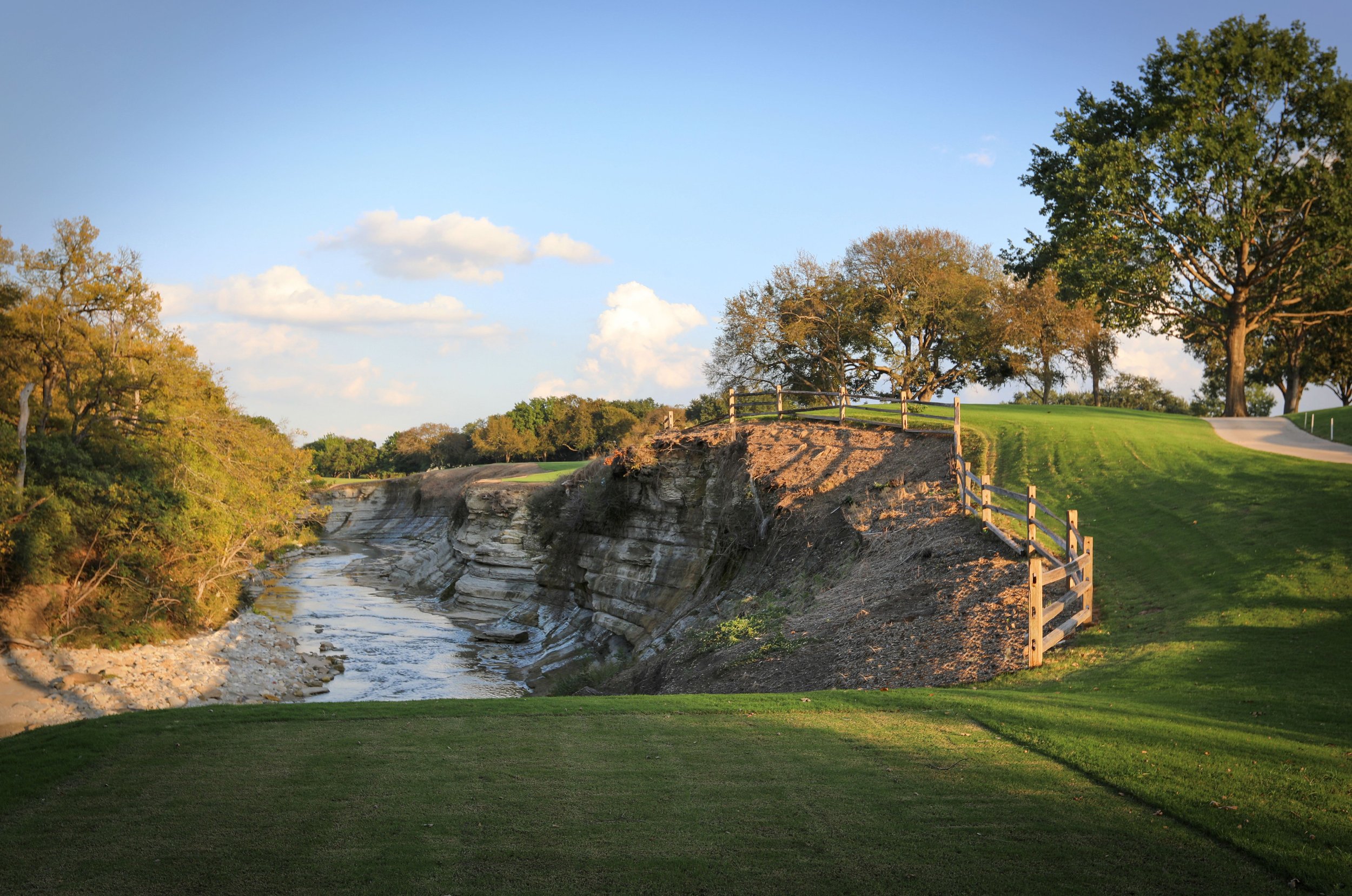
Golf IS DEEPLY ROOTED IN THE HEART OF TEXAS.
Texas Golf Drives $14.2B TOTAL Economic OUTPUT and $7.7B Direct impact for the State PLUS PRESERVES 150,000 acres of green infrastructure for wildlife habitat and improved quality of life.
Texas golf has flourished over the last decade - it’s more than a sport, it’s a reflection of the state’s values: tradition, pride, community, and connection to the land. Texas golf has grown to a $7.7 billion industry, supporting more than 107,000 jobs, contributing $14.2 billion in total economic impact, and labor income of nearly $4.8 billion for the state in 2023. Its economic output now surpasses the $12.3 billion Texas horse industry, reinforcing its powerful role in the state's economy.
Texas’ 821 golf courses showcase diverse landscapes, from rolling hills to coastal areas, while providing greenspaces that break up urban sprawl. With mild year-round weather, most courses remain open, making Texas a top destination for residents and visiting golfers. From small-town municipal courses to world-renowned championship venues, golf is a fixture in Texas culture.
Texas’ deep golf heritage includes 25 World Golf Hall of Fame members and Texas golfers have captured 102 Major Championships. A great number of Texas golf facilities are affordable and accessible, welcoming all skill levels. Historic courses like Lions Municipal “Muny” in Austin, which is listed on the Registration of National Historical Places, and Brackenridge Park in San Antonio, Texas’ oldest municipal course built in 1916, ensure broad, multi-generational access. In 2022, the Northern Texas PGA opened Ronny Golf Park - an Urban Golf Park at PGA Frisco. Free and open to all, it offers junior programs, family fun, and community connection. It’s the first of its kind in the country.
Texas ranks fifth nationwide in total golf courses, with nine courses on prestigious Top 100 lists, including Whispering Pines and Dallas National, recognized in Golf Digest’s 2023 ranking of “America’s 100 Greatest Golf Courses”. The state boasts 1.89 million individual on-course golfers (6.29% of the Texas population) ranking second nationally for on-course and total golf participation - akin to filling AT&T Stadium more than 23 times!
Texas golf facilities are a defining economic component in many cities through golf-related residential real estate value and new home construction, jobs, supply chain impacts, and charitable giving. Texas golf supports a wide range of Texas businesses that supply and service golf facilities. The industry contributes to consumer spending by employees, supports golf tourism, and boosts retail sales. Major professional tournaments and associations deliver direct economic impact while enhancing the state's appeal. Additionally, local golf events at facilities across Texas serve as powerful fundraising platforms, benefiting a broad spectrum of charities and foundations.
Golf provides valuable ecosystem services for Texas - including 150,000 acres of open greenspace, surface water filtration, flood mitigation, wildlife habitats, fitness and recreation, and connection with nature. The industry published a Texas Golf Best Management Practices (BMP) Guide in 2020 to promote conservation, wildlife habitat, and optimal course conditions. The environmental data in this report advances efforts toward preserving these ecosystem services for generations to come.
This study was conducted by Radius Sports Group and commissioned by the Texas Alliance of Recreational Organizations (TARO) in collaboration with the Texas Golf Association, the Northern and Southern Texas PGA Sections, the Texas Lone Star Chapter of the Club Management Association of America, the Texas Golf Hall of Fame, and the Lone Star Golf Course Superintendents Association. Economic impacts incorporate 2023 data and provide a basis for comparative analytics to the Texas Economic Impact Report published in 2012.

